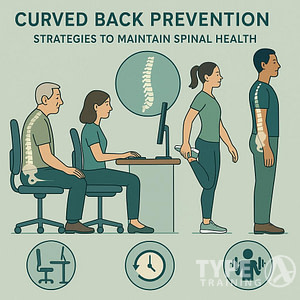Autophagy fasting is a popular trend in the health and wellness community. It is the body’s way of cleaning out damaged cells to regenerate newer, healthier cells.
By combining fasting with other lifestyle choices like exercise and proper hydration, you can potentially unlock numerous health benefits.
This process not only improves cellular health but also supports heart health and reduces inflammation.
Popular posts:
Additionally, it can enhance metabolic flexibility and promote healthy weight loss.
Whether you’re new to fasting or looking to optimize your routine, understanding autophagy can make a significant difference.
Key Takeaways
- Autophagy fasting cleans out damaged cells.
- Supports heart health and reduces inflammation.
- Enhances metabolic flexibility and aids weight loss.
The Science of Autophagy
Autophagy plays a crucial role in maintaining cellular health, reducing the risk of diseases, and promoting longevity.
Understanding Autophagy
Autophagy is your body’s way of cleaning out damaged cells and regenerating new ones.
The process involves the formation of an autophagosome which engulfs the damaged parts of the cell.
This autophagosome then fuses with a lysosome, which has enzymes that break down the waste.
The broken-down materials are repurposed to build new cellular components.
This recycling process is vital for maintaining cellular function and integrity.
It helps eliminate defective proteins and organelles, preventing cellular damage and dysfunction.
Autophagy and Cellular Health
Maintaining cellular health through autophagy helps in many ways.
The process removes damaged components, reducing the potential for cellular malfunction.
Autophagy supports DNA repair, ensuring that genetic material remains intact and functional.
It also helps in the death of malfunctioning cells, preventing their potential adverse effects on the body.
Autophagy genes play a key role in this process. They encode proteins that regulate the formation and function of autophagosomes, ensuring efficient waste removal and recycling.
Role in Disease Prevention
Autophagy is linked to the prevention of several diseases.
By removing damaged and dysfunctional components, it reduces the risk of cancer, where faulty cells can multiply unchecked.
This process is also crucial in combating neurodegenerative diseases like Alzheimer’s and Parkinson’s.
By clearing aggregated proteins, autophagy helps maintain neuronal health and function.
Aging is associated with a decline in autophagy. Enhancing autophagy can help slow down aging and improve overall cellular function.
Additionally, regular autophagy fasting can reduce inflammation and oxidative stress, leading to better overall health.
Learn more about the connection between autophagy and fasting for improved cellular health.
Fasting for Autophagy
Fasting can help your body repair and rejuvenate by triggering autophagy. This process is influenced by factors like nutrient intake, calorie restriction, and insulin levels.
How Fasting Induces Autophagy
When you fast, your body’s insulin and glucose levels drop. This creates an environment where cells start breaking down damaged components to recycle them.
Without
Benefits of Autophagy Fasting
Image Credit: drjockers.com/activate-autophagy/
Autophagy fasting offers numerous health benefits, including combating signs of aging, aiding in weight management, and potentially extending longevity. These advantages are significant for maintaining overall wellness and can help support a healthier lifestyle.
Combating Aging
Autophagy helps your body by cleaning out old or damaged cells, allowing for the regeneration of newer, healthier cells.
This process can reduce oxidative stress and inflammation, which are linked to aging and chronic diseases.
By targeting and removing aging cells, autophagy can improve skin health and elasticity, helping you appear more youthful.
Additionally, it supports proper nerve communication and function, which is essential for maintaining cognitive health as you age.
Engaging in autophagy fasting may also protect against age-related illnesses like heart disease by improving cellular functions and reducing harmful cellular debris.
This cellular clean-up helps maintain the health of various organs and tissues, contributing to a longer, healthier life.
Weight Management and Metabolism
Autophagy fasting can also play a significant role in weight management.
By promoting cellular cleanup, it helps improve your metabolism, making your body more efficient at using energy.
This process can stabilize energy levels during stressful periods, reducing the likelihood of energy crashes and overeating.
Fasting helps your body enter a state of metabolic flexibility, allowing it to switch more easily between burning fat and glucose for energy.
This is particularly beneficial for individuals on a keto diet, which relies on fat as the primary energy source.
Enhanced metabolic flexibility can aid in healthy weight loss and better insulin sensitivity, further supporting weight management goals.
Combining intermittent fasting with regular exercise can amplify these benefits, making your weight loss efforts more effective while promoting overall health.
Autophagy and Longevity
Autophagy is closely linked to increased longevity.
By removing damaged cells and preventing the accumulation of harmful proteins, autophagy helps your body maintain better cellular function over time.
This reduction in cellular waste contributes to a longer lifespan by improving overall cellular health.
Research suggests that autophagy can reduce the risks of chronic conditions like heart disease, which are major factors affecting lifespan.
By mitigating these risks, autophagy may help you live a longer, healthier life.
Implementing autophagy through fasting can also enhance your body’s ability to repair itself, supporting long-term health and resilience.
This process ensures that your cells remain functional and less prone to the damage that accompanies aging, providing a basis for improved longevity.
Autophagy-Enhancing Lifestyle Choices
To boost autophagy, focus on maintaining an active lifestyle and eating a balanced diet. Engage in activities that promote cellular health and provide your body with essential nutrients.
Incorporating Exercise
Regular exercise is a powerful way to enhance autophagy.
Activities like running, cycling, and strength training increase the rate at which cells remove and recycle damaged components. This helps improve cellular performance and overall health.
Aim for at least 30 minutes of moderate exercise most days of the week.
Strength training, in particular, can boost autophagy in muscle cells.
Exercises such as weight lifting or resistance band workouts are effective.
Consistency is key, so try to incorporate these activities into your routine regularly.
Aerobic exercises, such as swimming and brisk walking, are also beneficial.
They improve your cardiovascular health while promoting autophagy.
Remember, staying active is vital for maintaining cellular health and function.
Balanced Diet and Nutrition
Eating a balanced diet rich in nutrients supports autophagy.
Incorporate plenty of fruits, vegetables, whole grains, and lean proteins into your meals.
These foods provide essential vitamins and minerals that aid in cellular repair and maintenance.
Intermittent fasting is a popular method to stimulate autophagy. It involves cycling between periods of fasting and eating. This can help manage weight and improve your metabolic health.
Hydration is crucial, too. Drinking enough water ensures that cellular processes function correctly.
Avoiding processed foods and excessive sugars can further support cellular health.
Incorporating healthy fats, such as those found in avocados and nuts, can also aid in autophagy.
These fats help maintain hormonal balance and support overall cellular function.
Risks and Precautions
Image Credit: drjockers.com/fasting-side-effects/
When considering autophagy fasting, it’s important to understand potential downsides and know who should avoid it. This fasting method may offer health benefits but also carries some risks.
Understanding Potential Downsides
Autophagy fasting can lead to adverse effects if not done correctly.
One risk is nutrient deficiency due to prolonged fasting periods. Without adequate nutrition, you might experience fatigue, weakness, and difficulty concentrating.
Stress on the body is another concern. Fasting can elevate cortisol levels, increasing stress, which could negatively impact your health.
This stress might lead to higher inflammation, counteracting some benefits of autophagy.
People with weakened immune systems may find fasting risky.
If you have an underlying health condition, your ability to fight off infections could be compromised.
It’s crucial to monitor your body’s responses and consult healthcare professionals before starting long fasting periods.
Who Should Avoid Autophagy Fasting
Certain groups should avoid autophagy fasting entirely.
Pregnant or breastfeeding women need to maintain a steady nutrient intake for their own health and their baby’s well-being. Fasting can disrupt this balance.
Individuals with eating disorders should steer clear of fasting.
Limiting food intake could worsen symptoms and potentially lead to a relapse. Ensure you consult with a healthcare provider if you’ve struggled with such issues.
People with chronic diseases, particularly those affecting metabolism like diabetes, should not attempt autophagy fasting without medical supervision.
Fasting can cause fluctuations in blood sugar levels, which may be dangerous.
Lastly, the elderly should be cautious.
As you age, your nutritional needs change, and fasting might lead to muscle loss and decreased protein synthesis, impacting your overall health.
Measuring and Monitoring Autophagy
Knowing how to measure and monitor autophagy helps you track its progress and effectiveness. Key indicators include specific autophagy markers and the advice from health professionals.
Autophagy Markers and Indicators
To measure autophagy, scientists look at specific markers and indicators.
LC3 proteins are widely used markers. During autophagy, LC3-I transforms into LC3-II, which binds to autophagosomes. By measuring these levels, you can assess autophagic activity.
Ketones can also indicate autophagy.
When you fast, your body shifts to burning fats, producing ketones. Increased ketone levels may suggest increased autophagic activity.
Similarly, reduced blood sugar levels during fasting can signify a metabolic shift associated with autophagy.
Another way to gauge autophagy is through detox processes.
When autophagy is activated, cells degrade and recycle damaged proteins and organelles, aiding in detoxification.
Role of Professional Health Advice
Consulting with health professionals is crucial for accurate autophagy monitoring. They can guide you on how to interpret autophagy markers safely and effectively.
Medical experts might use advanced methods like immunoblotting or fluorescence microscopy to observe autophagy markers.
A healthcare professional can also help you track other important metrics like ketones and blood sugar levels. This advice is crucial for managing any side effects and ensuring your health during fasting.
Getting professional feedback helps tailor your fasting approach to your personal health needs. They can adjust your regimen to maximize benefits like improved cellular health and reduced inflammation without risking adverse effects.
Combating Specific Diseases
Autophagy fasting has been studied for its potential effects on various diseases. Research highlights its benefits in cancer prevention and on neurodegenerative disorders.
Fasting in Cancer Prevention
Fasting can help in reducing cancer risk by triggering autophagy, a process where your body cleans out damaged cells. This cleaning process helps prevent the buildup of abnormal cells that could lead to cancer.
Some studies suggest that autophagy may limit tumor growth by removing defective cells before they multiply.
Autophagy fasting might enhance the effectiveness of cancer treatments. By fasting, your body can make cancer cells more sensitive to chemotherapy and radiation. This increased sensitivity might improve treatment outcomes and reduce side effects. For those at high risk, incorporating autophagy fasting may serve as a preventative strategy.
For instance, some clinical research shows that autophagy is vital in reducing mutations that may lead to cancer. You should always consult with a healthcare professional before starting any fasting regimen, especially when dealing with or preventing cancer.
Impacts on Neurodegenerative Disorders
Autophagy fasting can also provide benefits for preventing and managing neurodegenerative disorders such as Alzheimer’s and Parkinson’s disease. This process helps in breaking down and clearing out misfolded proteins and damaged mitochondria, which are often found in high amounts in these conditions.
By promoting the clearance of these harmful components, autophagy fasting may slow down the progression of diseases like Alzheimer’s. Studies have shown that enhancing autophagy can improve memory and cognitive function, which are commonly affected by neurodegenerative disorders.
In Parkinson’s disease, autophagy fasting might help in the removal of defective proteins that accumulate in the brain. These proteins are typically responsible for the death of neurons, leading to the symptoms of Parkinson’s. Regular fasting and boosting autophagy could potentially offer a protective effect against these disorders.
Autophagy and the Immune System
Autophagy plays an important role in enhancing immune function and fighting infections. This process can help clear out damaged cells and pathogens, boosting your body’s defense mechanisms.
Immune System Strengthening
Autophagy can enhance your immune system by clearing away damaged cells and harmful pathogens. This cellular cleanup process helps maintain a healthy immune response. When your cells get rid of damaged parts, it makes them more efficient.
For example, fasting or calorie restriction can trigger autophagy. This leads to a reduction in the number of specific immune cells like monocytes and lymphocytes in your blood. These changes can help your body better respond to stress and infections.
Studies indicate that fasting may also cause an increase in stored lymphocytes and a decrease in monocyte movement within bone marrow. This shift helps in renewing and strengthening your immune cells more efficiently.
Autophagy in Fighting Infections
Autophagy can also directly combat infections. During autophagy, your cells can break down viruses, bacteria, and other pathogens. This disrupts their ability to replicate and spread.
By increasing the metabolic buffering capacity of your cells, autophagy makes your body more resilient against various stresses and infections. This enhanced resilience is crucial for maintaining overall health.
Intermittent fasting has been shown to induce autophagy within 24 to 48 hours, boosting cellular resistance to infections and stress. These cycles of fasting and eating not only help cleanse your cells but also improve how effectively they deal with pathogens.
Diet and Nutritional Strategies
To support autophagy through fasting, certain diets and specific nutrient-rich foods can be beneficial. These strategies aim to enhance cellular health and maximize the benefits of autophagy.
Keto Diet and Autophagy
The keto diet is high in fats and low in carbohydrates. This dietary approach can help trigger autophagy since it mimics the effects of fasting by lowering insulin levels and increasing ketones in the blood. When you follow a keto diet, your body switches to burning fat for fuel, helping to maintain steady energy levels.
Experts suggest that the keto diet can improve metabolic flexibility. This can support autophagy by providing a consistent energy source during fasting periods.
Foods like avocados, nuts, and seeds are common in the keto diet. Incorporating these foods can help sustain the high-fat, low-carb nutritional balance needed to stimulate autophagy.
Nutrient-Rich Foods That Promote Autophagy
Certain foods are known to promote autophagy due to their nutrient content. Turmeric contains curcumin, which has anti-inflammatory properties and can help enhance cellular health. Garlic is another great option, as it has antioxidants that assist in the autophagy process.
Green tea is rich in catechins, which have been studied for their ability to promote autophagy. Consuming dark chocolate and red wine in moderation can also be beneficial, thanks to their polyphenol content. These polyphenols have been linked to improved mitochondrial function and cellular rejuvenation.
Adding these nutrient-dense foods to your diet can help support cellular renewal and make the autophagy process more effective. Regular consumption of these foods can offer long-term health benefits and improve your overall well-being.
Beyond Eating: Other Autophagy Triggers
Autophagy isn’t just shaped by what you eat; other factors like exercise and sleep also play crucial roles. Here, we explore how physical activity, stress, and sleep can influence this cellular process.
Exercise and Stress as Triggers
Engaging in regular exercise can stimulate autophagy, especially activities like high-intensity interval training (HIIT) and endurance workouts. Physical activity creates mild cellular stress, triggering your cells to clean out damage and improve efficiency. This process helps in maintaining better cellular health and supports overall longevity.
Additionally, stressors such as heat and cold exposure can activate autophagy. These stressors push your cells into a survival mode, similar to when you fast. While chronic stress can be harmful, controlled exposure to stressors from activities like sauna use or cold showers can have beneficial effects on cellular cleansing.
The Impact of Sleep on Autophagy
Good quality sleep is essential for maintaining cellular health and promoting autophagy. During sleep, your body undergoes various repair processes, including the breakdown and removal of damaged proteins and cells. This nightly “cleanup” is important for brain health and overall body function.
Poor or insufficient sleep can disrupt hormone levels like cortisol and melatonin, which are crucial for managing stress and regulating autophagy. Ensuring you get enough restful sleep can enhance your body’s ability to perform autophagy, contributing to better health and wellness.
Frequently Asked Questions about Autophagy Fasting
Autophagy fasting is gaining attention for its potential health benefits, which include cellular rejuvenation and improved metabolic function. Below are detailed answers to common questions about this process.
What are the signs that autophagy is taking place during fasting?
You may not always feel the exact moment when autophagy begins, but indicators include increased energy levels and a clearer mind. Some people also experience a reduction in inflammation.
What are the potential benefits of engaging in autophagy through fasting?
Autophagy can help improve cellular health, boost metabolic flexibility, and support healthy weight loss. It may also enhance insulin sensitivity and reduce inflammation and oxidative stress.
How long should I fast to initiate autophagy?
To initiate autophagy, you generally need to fast for at least 16-24 hours. More extended fasting periods might provide more profound autophagy effects.
What is the recommended frequency of fasting to optimize autophagy?
To optimize autophagy, consider intermittent fasting protocols, such as fasting two to three times a week or following a 16:8 fasting schedule.
Are there specific foods that can support or maintain a state of autophagy?
A ketogenic diet or a low-carb diet may support autophagy. Focus on high-fat, moderate-protein, and low-carb foods. Avoid animal proteins, which may inhibit the process.
What common factors could interrupt or prevent the process of autophagy while fasting?
High protein intake, especially from animal sources, can inhibit autophagy.
Drinking beverages with artificial sweeteners or consuming high carbohydrate foods can also disrupt the process.
















